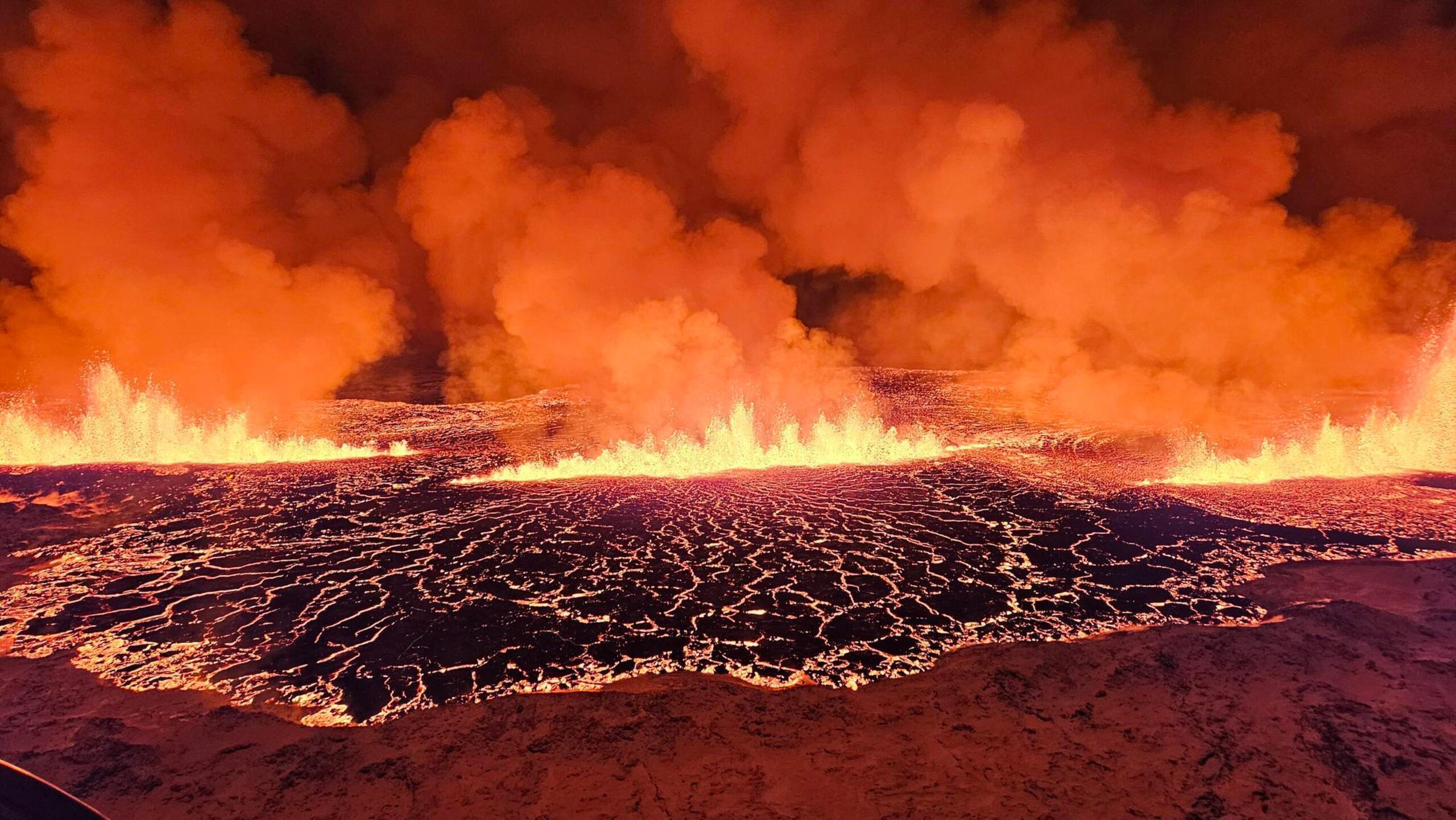By: Hannah Zhang
Volcanoes are a force of nature, causing some of the worst natural disasters in the history of the world. A few of the most well known include the eruptions of Mount Vesuvius and Mount St. Helens. Most volcanoes don’t erupt for tens, hundreds, or even thousands of years, yet as of the end of July 2024, Iceland is expecting its eighth eruption since March of 2021.
Volcanoes form when one tectonic plate descends below another. Iceland happens to be located on the Mid Atlantic Ridge, where the Eurasian and North American plates are currently active, explaining Iceland’s overload of volcanic activity. Volcanoes erupt when too much magma has built up in its chamber, which leads it to come bursting out. These eruptions, however, have the potential to last from a few days to several years, and are affecting landscapes and the daily lives of residents living in the area.
Even so, for volcanoes to erupt so many times in such a short time frame is still a rare geological event. Usually, Iceland witnesses some form of volcanic activity every three to four years, while it is currently experiencing an eruption nearly every month. More detailed theories on why this is happening can be found in the article “Iceland’s volcano eruptions may last decades,” from the University of Oregon.
As Matthew J. Roberts, the managing director of the Icelandic Meteorological Office states in the New York Times, “This is a totally unparalleled and unexpected event. To think that this would happen in my human lifetime, it is remarkable.” Remarkable as it is, however, the rise in volcanic activity in Iceland could bring more harm and damage to its surrounding communities and local infrastructure than it already has.
In addition to the quick succession of eruptions that have already affected the country, scientists predict that this sequence could go on for decades, or even centuries. Their findings were published in the journal Terra Nova on June 26, 2024, including collaborations with a variety of universities.
Fortunately, the volcanic activity in Iceland has not produced enough volcanic ash to affect air travel, and is not expected to cause any widespread damage or harm.











